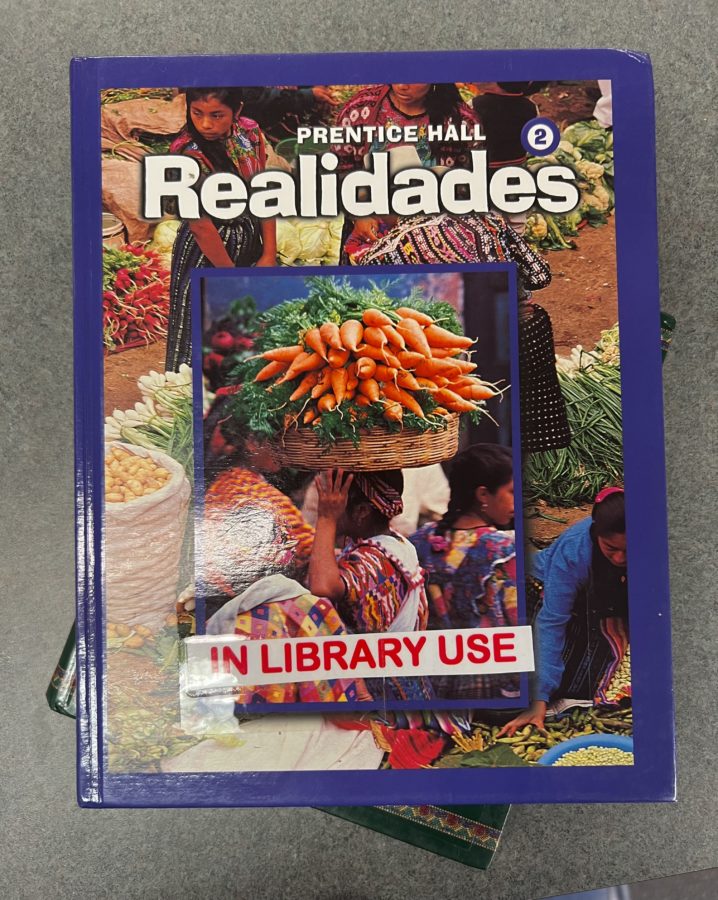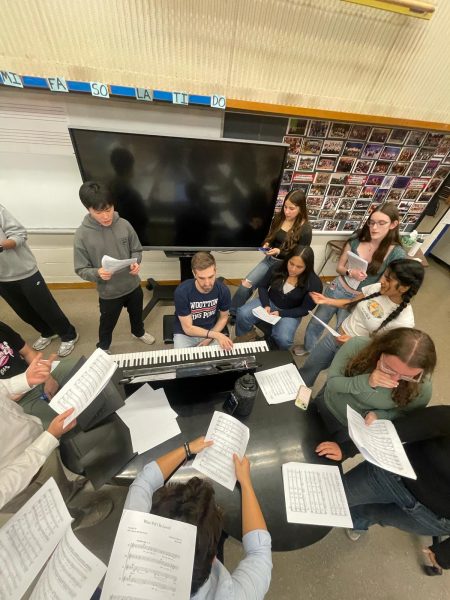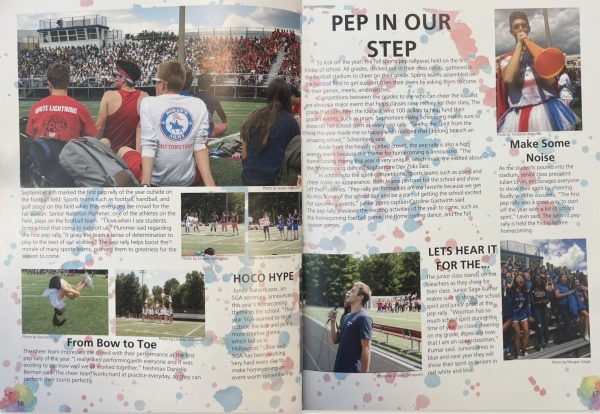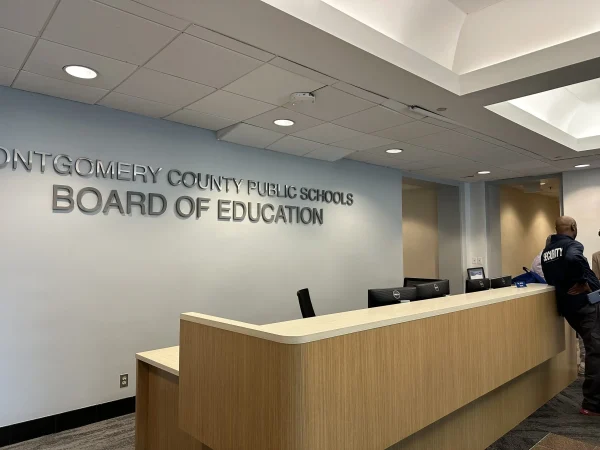World language education needs change for students to learn effectively
Assignments in world language classes tend to be based on readings or writing, not interactive activities which can be more effective.
In order to graduate, every student in MCPS is required to take world language classes. While the number of credits can vary by grade or program, taking world languages is unavoidable if one wants to graduate. Unlike other core classes, there are a variety of paths a student can pick when starting their world language journey. Most commonly selected are Spanish, French, and Chinese, but this school also offers ASL and Latin. Despite the variety and choices students are offered, the world language education system needs serious change.
Students are already at a disadvantage solely because of the point at which foreign language education starts. Many students typically start a new language in seventh or eighth grade and take it throughout high school. At these ages, the capacity to learn a new language is quickly fading, considering students are all past age 10, which is considered the last optimal time to start learning new languages. “The most recent major study on language learning and age was conducted by researchers at Harvard and MIT. It concluded that starting to learn a new language before age 10 will give a learner the best chance of achieving proficiency similar to that of a native speaker,” according to Rosetta Stone, an online language education program.
Although students are not at an ideal age, there are other ways they can gain proficiency that MCPS and all language classes should begin to adopt. Languages classes at school are formatted like typical core classes such as English and history, with emphasis on learning information through reading, writing and regular quizzing. Although these approaches may work for other classes, world languages need a more interactive and immersive approach. While tests and quizzes can be useful to assess student knowledge, they promote unhealthy study habits for language learners. Studying in short bursts before assessments is not sustainable for long-term retention, which is why prolonged projects and interactive tasks are more cohesive to learning a new language.
Students here agree with this fact, acknowledging that something must be changed in order for everyone to obtain higher levels of knowledge in their language of choice. In a survey conducted of 33 students, 22 wrote that they wanted their classes to focus less on testing and more on real-world application of the language and learning about more cultural and societal aspects.
The school agrees with these needed changes. “The world language department is in the process of transitioning to a proficiency-based model of teaching. By that, I mean that the focus will be on communication and the real-world application of the language. The reason we all teach a language is so that our students can communicate in the real world with real people, so we are currently examining teaching practices that reflect that goal,” Dr. James Fetterman, head of the world languages department said.
While a good curriculum can be a large part of why a student learns a language, they must also enjoy what they are doing. In the same survey, students were prompted to state on a range if they agreed or disagreed with the statement “Overall, your experience with world language classes has been positive.”
Over 23.% of students either disagreed or strongly disagreed with this statement, which shows that world language education needs to change sooner rather than later. Just one negative experience can sour a student’s future outlook on their language education, so it is vital that any changes to foreign language education are made with student experiences and ideas in mind.
Being knowledgeable in multiple languages is a considerable asset for anyone to have, considering 60-75% of the world is fluent in at least two languages. Students should not dread learning languages, or view it as an obstacle on their way to graduation. Changes must be made to the world languages curriculum in order for students to start truly learning and stop getting by with simple phrases or vocabulary. “By interacting with people from different backgrounds and countries, students gain cultural competency so that they can participate in our multilingual community and other communities around the world,” Fetterman said.
Your donation will support the student journalists of Thomas S. Wootton High School. Your contribution will allow us to purchase equipment and cover our annual website hosting costs.
Claire Lenkin is a 2025 graduate.







